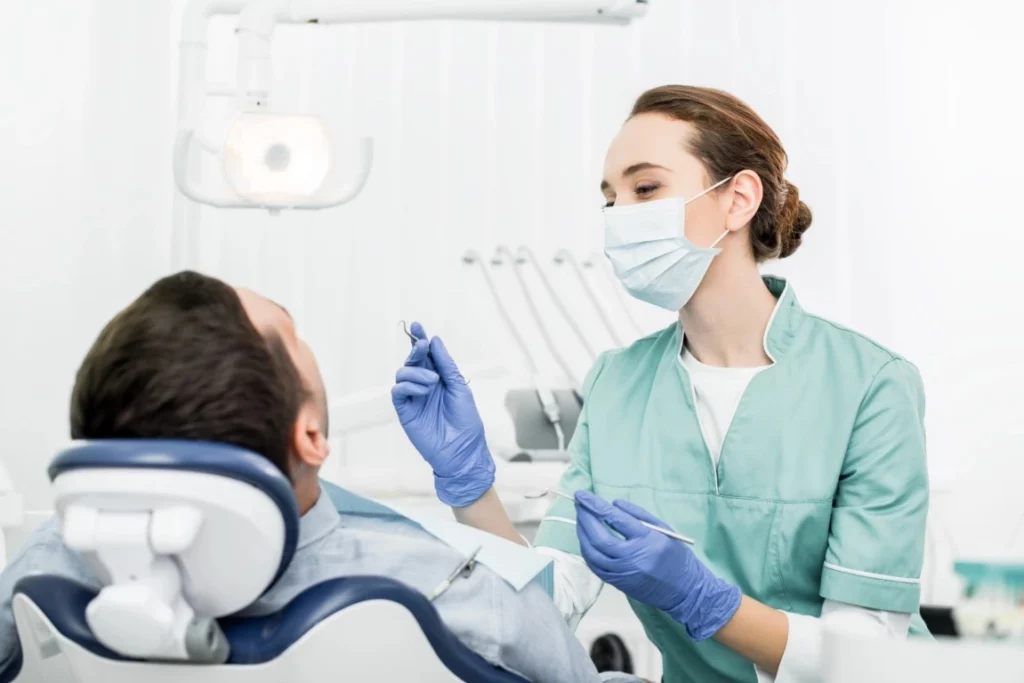
Halitosis, or chronic bad breath, is a common complaint. While it can be embarrassing, that’s not the only thing that makes it concerning — persistent bad breath can be a sign of an underlying issue that needs to be addressed.
At the office of Eric Felt DDS, our team is committed to helping you achieve lasting results as you work to improve your oral health. Rather than just masking your bad breath, we encourage you to dig a little deeper to identify and address the root cause.
If you’re struggling with halitosis, keep reading to explore possible causes and solutions and learn when it’s time to seek professional help from your dentist.
Common Causes of Halitosis
First, let’s get into some things that may be contributing to your bad breath.
Food and Drink Choices
Food and drink choices are the most common causes of bad breath, but the good news is that their effects are typically temporary. When you eat or drink something with a strong smell, such as garlic, onions, alcohol, or coffee, the food particles can linger in your mouth and emit odors.
Furthermore, some foods contain volatile sulfur compounds that are released when chewed. These compounds are absorbed into the bloodstream and exhaled through the lungs, causing lingering bad breath.
The effects should wear off after a couple of hours. If they don’t, it may be a sign that something else is contributing to your halitosis.
Poor Oral Hygiene, Tooth Decay, and Gum Disease
Poor oral hygiene is another common culprit behind halitosis. When food particles are left in the mouth, bacteria break down the debris, which, like smelly foods, can release foul-smelling volatile sulfur compounds.
Eventually, this bacteria can cause plaque buildup on the teeth and tongue, leading to tooth decay and gum disease. Decayed crevices in the teeth and infected gum pockets harbor bacteria, exacerbating halitosis.
Watch out for bleeding or receding gums, swelling, pain while chewing, and visible buildup on the teeth, which are signs of more serious oral health issues that can contribute to bad breath. To prevent these issues, it’s essential to follow proper oral hygiene guidelines for brushing, flossing, and tongue cleaning.
Dry Mouth (Xerostomia)

Saliva plays an incredibly important role in oral health. It washes away bacteria and food, keeping your mouth clean and helping to prevent tooth decay and gum disease. Xerostomia, characterized by a chronically dry mouth, can be caused by certain medications or conditions, mouth breathing, and dehydration.
When there’s not enough saliva to keep bacteria away, those germs can metabolize and reproduce. That means that if you struggle with a dry mouth, you’re at an increased risk for gum disease and cavities, which are common contributors to halitosis.
Tobacco Use
While tobacco products like cigarettes, cigars, and chewing tobacco leave lingering odors in the mouth, that’s not the only way they can negatively affect your oral health and contribute to halitosis. Tobacco dries out the mouth, which can lead to gum disease, as we mentioned before.
Furthermore, tobacco use can stain the surface of the teeth, slow down the healing process, reduce blood flow to the gums, impact sensation and taste, and even cause oral cancer. And that’s not to mention the systemic health issues! If you’re a tobacco user, talk to your doctor or dentist about quitting.
Medical Conditions
Certain medical conditions have been linked to bad breath, as well, including:
- Respiratory infections, such as sinusitis, postnasal drip, and bronchitis
- Digestive issues, such as acid reflux and GERD
- Systemic conditions, such as diabetes and kidney or liver problems
- Infections in the mouth, nose, or throat, including tonsil stones
Because of this, it’s important not to ignore your halitosis — it may indicate something more serious going on in your body.
Dental Appliances
Bacteria can build up on dental appliances like dentures, retainers, mouthguards, and braces. That bacteria can spread to other parts of your mouth, causing decay, gum disease, and halitosis. If you have a dental appliance — whether it’s fixed in place or not — it’s vital to clean them thoroughly, getting in all the nooks and crannies to eliminate bacteria, protect your oral health, and keep your breath fresh.

We Can Help You Find Relief from Halitosis
Everyone has bad breath on occasion. However, if you have persistent bad breath despite good oral hygiene or notice signs or gum disease or infection, contact our team at the office of Eric Felt DDS to schedule an appointment so we can address your concerns. Remember that dental checkups and professional cleanings are key to treating halitosis and preserving your oral health, so make today the day that you take the first step toward fresher breath and a healthier smile.


